Democracy lost, almost
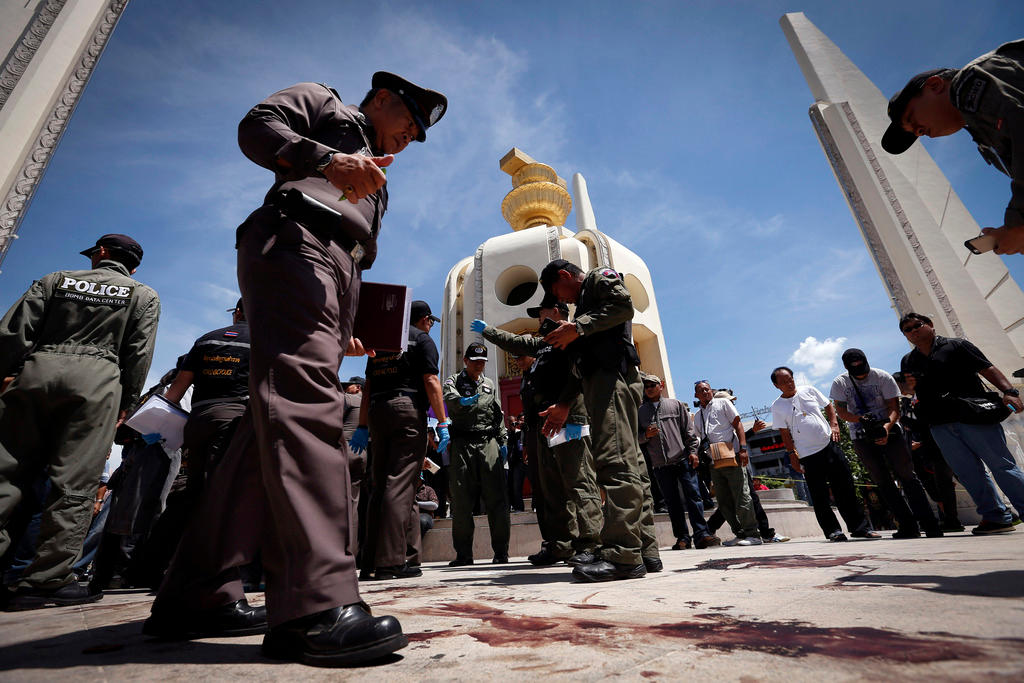
South East Asia has it all. Countries full of potentials and challenges, ambitious people with hopes and fears and the vitality of highly cultural societies. And yet, a visit to the Thai capital Bangkok is a true roller coaster ride in a situation when democracy has almost disappeared.
The Tuk Tuk driver I approached outside the busy Phaya Thai skytrain station in downtown Bangkok seems to have understood.
“I would like to go to the Democracy Monument,” I said. “Ok”, he answers quickly jumps into the driver’s seat, moves forward a couple of hundred metres to the next traffic lights and turns to me: ”Sir, I do not understand.”
After pointing out the massive public monument on the map, he finally agrees to bring me there, at least – almost. Because it is really difficult to get to the Monument of Democracy, as it is situated in the middle of a very busy traffic circle on the wide Ratchadamnoen Klang Road.
Cars, lorries, buses, motorcycles and Tuk-Tuks are rushing around the monument in up to eight parallel lanes, but there is no access for pedestrians to take a close look at this structure. It was erected in 1939 to commemorate the 1932 Revolution, establishing for the first time a constitutional monarchy with strong republican features.
It takes some life-threatening action for me to finally get a closer look of the monument, which citizen activists used repeatedly as a gathering point for protests against the military rulers in the past.
It’s important to stress: in the past. Today, such gatherings are simply forbidden. “If more than five people meet in public to discuss politics they can be sent to prison,” a European diplomat based in Bangkok explains to me later that day.
The related law was adopted by the ruling junta of General Prayut Chan-o-Cha. Since the abolishment of absolute monarchy 85 years ago, the military has staged more than a dozen coups d’etat. Each time the small democratic spaces won by the brave people of Thailand was re-captured by the military, often with at least the passive support of the monarchy.

After the most recent coup in 2014, the situation has become even more serious than on previous occasions. King Bhumibol (Rhama IX) died last year after a long reign and was replaced this autumn by his son Maha Vajiralongkorn (Rama X).
The new king has shown even less interest in people power than his father. Therefore all signs remembering the Thai people of their historic democratic achievements were removed, including a plate remembering the 1932 revolution on the Royal Plaza. Access for pedestrians to the democracy monument was also made virtually impossible.
Vote without choice
Instead the current leaders try to design some form of “democrature”- a form of authoritarian democracy with a regime that occasionally organises popular votes.
Last year Thai citizens were asked to adopt a new constitution – the 20th since 1932 – written by a militarly-appointed constitutional assembly. But bizarrely, campaigning for a “No” vote was forbidden by law.
For next year, elections to local assemblies and the national parliament have been announced by General -turned prime minister – Prayut. However, it is highly uncertain if fundamental freedoms of speech, media, assembly and political activity will be re-established in time for these votes and whether these rights will be guaranteed to some extent.
“But when they are back we will be ready,” a leading democracy supporter and activist told me over coffee at Silom Complex this week.
He is coordinating no less than 77 local pro-democracy groups across Thailand. “They are using the ongoing democracy lull to educate themselves and others about the basics of people power,” he said. Such educational efforts are not outlawed, he stressed, nor is our face-to-face conversation about politics.
Additionally, there are some signs that the military is beginning to understand the lack of legitimacy for their inflexible way of ruling the country. A few days ago, the generals launched a nationwide consultation process, inviting citizens to answer six questions regarding the future forms of government.
The history, economic development and international flair of Bangkok and Thailand may give indications for pessimists as well as optimists like me about the future of democracy in the region.
The very idea and practice of political freedoms has taken many blows in the whole of South East Asia recently. Little progress if any progress at all has been made in the Philippines, Bangladesh, Malaysia and Laos.
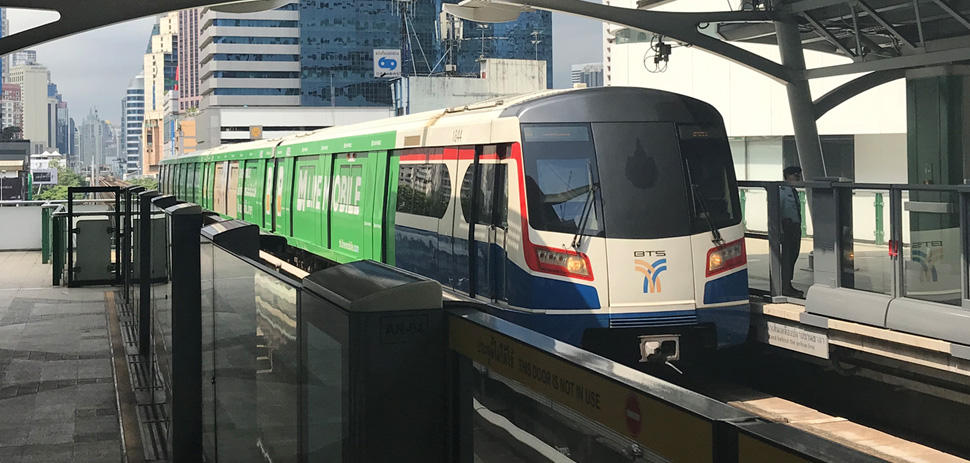
On the contrary, Cambodia’s highest court last week banned the country’s main opposition National Rescue Party (NRP), which had gained more than 30% of the popular vote in the 2016 elections.
The independent The Cambodia Daily – now also banned – gave an accurate account on its front page. “Downwards to absolute dictatorshipExternal link“.
Ahead of next year’s elections there will be no political force to challenge the anachronistic rule of the former Khmer Rouge movement with its leader Hun Sen, who has led the government for more than 32 years.
In addition, there are no neighbouring countries ready to question such a development. Thailand is governed by a junta; Leninists are in charge in Vietnam and Laos. Burma/Myanmar has changed from hope to disaster within a short time, as the country under the leadership of former democracy activist and Peace Nobel Prize winner Aung San Suu Kyi is carrying out a genocide against the minority Rohingya population.
And on top of that, there is China. Its rise to a potential superpower is based on a model which disregards the basic freedoms codified in the Universal Declaration of Human Rights altogether.
Bangkok – hub for a better future
Discussing with disillusioned democracy promoters and supporters in Bangkok this week, one thing seems clear. The hurdles for a positive future are much higher than just a few years ago. But at the same time, the knowledge about what could be done under better circumstances has not gone.
Ironically, Bangkok is still the main hub for non-governmental and governmental organisations from across the world promoting and supporting people power in all its varieties. And beyond Thailand and its close neighbours, there are societies where democratic progress is prevailing at this stage, including countries like Indonesia, Sri Lanka, India, Bhutan, Nepal, Taiwan and South Korea.
Reason enough for this #ddworldtour – now moving on to Oceania for a couple of months – will get back to South East Asia early next year. There will much more to report about, but also possible new forms of educational efforts to support.
Like in other parts of the world, democracy in South Asia needs to become much more local and transnational at the same time. Locally engaged civic groups and business leaders in cooperation with forward-looking mayors can make a lot of progress (if enjoying a minimum amount of autonomy).
Transnational networks of such local democratic spaces need to be established for encouragement and knowledge exchange. So even if the great ideas of a democratic kingdom of Thailand, the hopes linked to a Peace Nobel Prize winner in Burma and the important lessons drawn from the Khmer Rouge catastrophe are fading away, there are many opportunities ahead for South East Asia.
Swiss-Swedish author and journalist Bruno Kaufmann is on a world tour to explore the state of democracy visiting more than 20 countries on four continents until May 2018.
swissinfo.ch publishes a weekly Notebook and multimedia reports by Kaufmann over the next few months as part of its coverage of direct democracy issues.
Kaufmann’s democracy world tour is mainly sponsored by the Swiss Democracy FoundationExternal link, where he is the director of international cooperation. The Swiss Democracy Foundation hosts various projects and platforms linked to participatory and direct democracy across the globe, including Democracy InternationalExternal link, the Direct Democracy NavigatorExternal link and the Initiative and Referendum Institute EuropeExternal link.
Follow the tour on #ddworldtour @kaufmannbruno @democracyreporter and /people2power.info

In compliance with the JTI standards
More: SWI swissinfo.ch certified by the Journalism Trust Initiative









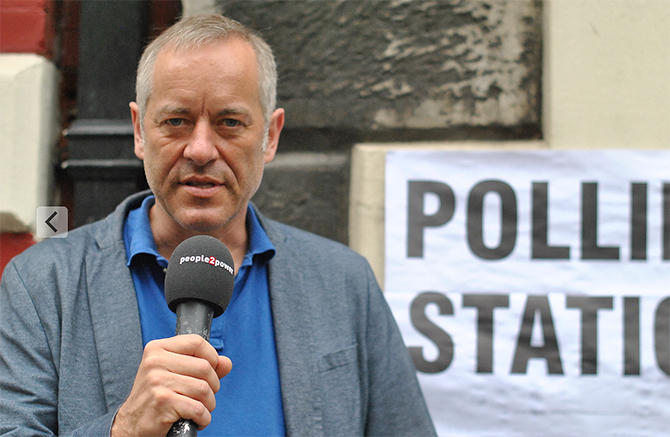
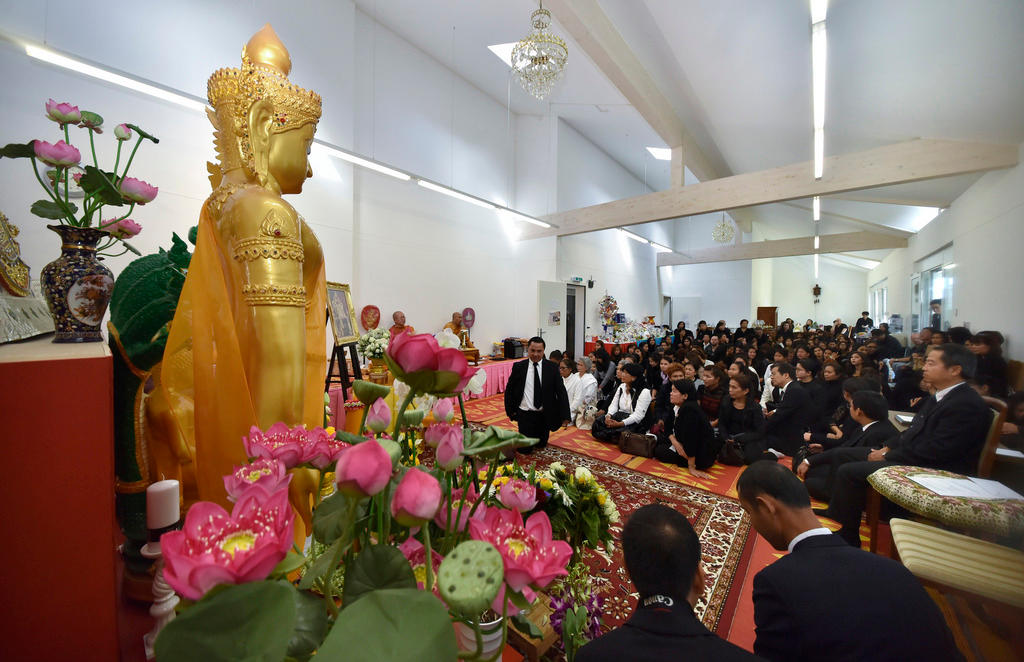
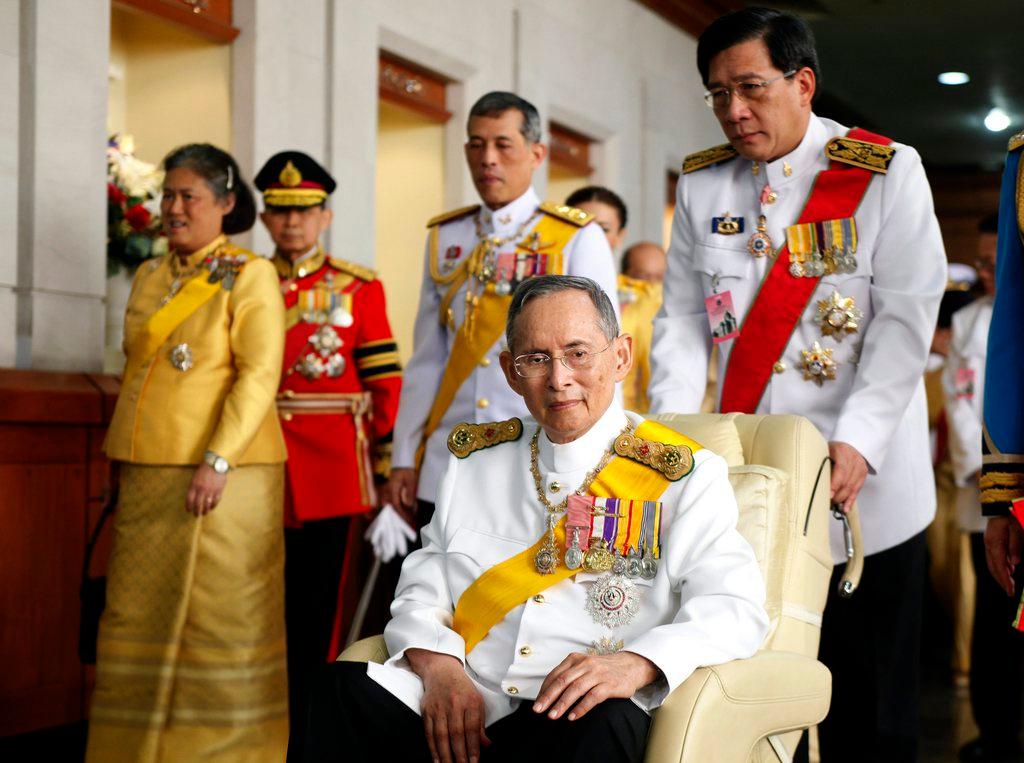
You can find an overview of ongoing debates with our journalists here . Please join us!
If you want to start a conversation about a topic raised in this article or want to report factual errors, email us at english@swissinfo.ch.